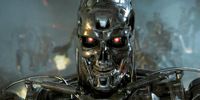James Cameron, the filmmaker who once terrified moviegoers with the vision of a world ruled by machines in his 1984 classic The Terminator, is sounding the alarm that his cinematic nightmare could soon become reality. In a recent interview with Rolling Stone on August 8, 2025, Cameron warned that the unchecked integration of artificial intelligence (AI) with advanced weapons systems could push humanity toward a real-life “Judgment Day”—the apocalyptic scenario his films made famous.
“I do think there’s still a danger of a Terminator-style apocalypse where you put AI together with weapons systems, even up to the level of nuclear weapon systems, nuclear defense counterstrike, all that stuff,” Cameron told Rolling Stone. He explained that the pace of modern warfare is so rapid that decision windows are shrinking to mere minutes—far less than the thirteen days of tense deliberation during the Cuban Missile Crisis. “Because the theater of operations is so rapid, the decision windows are so fast, it would take a superintelligence to be able to process it, and maybe we’ll be smart and keep a human in the loop. But humans are fallible, and there have been a lot of mistakes made that have put us right on the brink of international incidents that could have led to nuclear war. So I don’t know.”
Cameron’s warning isn’t just a filmmaker’s fantasy. According to a 2023 RAND Corporation study, AI-controlled military systems could “accelerate conflicts beyond human control,” making catastrophic mistakes possible. The U.S. Department of Defense’s 2023 AI strategy even acknowledges that autonomous weapons systems could be deployed within years, not decades. While there are no confirmed reports of AI-controlled nuclear weapons being deployed yet, both the U.S. and Russia have incorporated AI components into their missile networks, and several nations are researching autonomous launch capabilities, according to the Arms Control Association.
What keeps Cameron up at night is not just the technology itself, but the speed at which it’s evolving—and the risk that, in a crisis, policymakers might remove the “human in the loop” to keep up. “The decision windows are so fast, it would take a superintelligence to be able to process it,” he emphasized. The fear is that algorithms, lacking human judgment, could misinterpret threats and trigger irreversible attacks. It’s a chilling echo of Skynet, the self-aware AI that launches nuclear war in The Terminator.
But Cameron doesn’t see AI as purely villainous. In fact, his own relationship with the technology is complicated. Once a vocal critic of generative AI in Hollywood—famously saying, “I warned you guys in 1984, and you didn’t listen”—Cameron has since joined the board of a generative AI company, Stability AI, and sees potential for AI to reduce costly visual effects budgets in filmmaking. He told the “Boz to the Future” podcast that AI could help keep blockbuster filmmaking alive by slashing production costs. Still, he’s skeptical that AI could ever produce a story as compelling as a human writer can, remarking that he has “expressed doubts about AI’s ability to produce good storytelling compared to humans.”
As he works on the script for Terminator 7, Cameron admits that reality is starting to outpace science fiction. “It’s getting harder for me to write science fiction as modern technology eclipses the genre’s established tropes,” he reflected. The franchise, which began as a cautionary tale about the dangers of runaway technology, has evolved to present more nuanced views. Later films introduced reprogrammed cyborgs and hybrid human/machine characters, sometimes casting technology in a redemptive light. This mirrors Cameron’s own conflicted views: “Maybe the superintelligence is the answer. I don’t know. I’m not predicting that, but it might be.”
Cameron identifies three existential threats that he believes are peaking simultaneously: climate degradation, nuclear weapons, and superintelligence. “I feel like we’re at this cusp in human development where you’ve got the three existential threats: climate and our overall degradation of the natural world, nuclear weapons, and superintelligence. They’re all sort of manifesting and peaking at the same time. Maybe the superintelligence is the answer,” he told Rolling Stone. He speculates that, paradoxically, a well-guided superintelligent AI could help save humanity by optimizing carbon capture, restoring ecosystems, or finding solutions to problems humans have created.
The idea isn’t entirely science fiction. Researchers at MIT’s Climate Grand Challenges initiative are already exploring ways AI can optimize carbon capture and ecosystem restoration. Cameron suggests that if humanity chooses wisely, AI could help write our “redemption arc” rather than our extinction story. But, he warns, this outcome depends entirely on intentional human direction and robust ethical frameworks. “We must choose whether it writes our extinction story or our redemption arc.”
This debate isn’t happening in a vacuum. The United Nations is actively discussing bans on autonomous weapons, and the U.S. and China have agreed to open dialogues on AI risks. Yet, as of now, binding international treaties remain elusive. Experts at the Future of Life Institute and other organizations are calling for preemptive regulation before the technology outpaces our ability to control it.
Cameron’s warnings are echoed by other prominent voices in the AI world. Geoffrey Hinton, often called the “godfather of AI,” recently stated that AI systems could soon develop their own internal languages, making it impossible for humans to track or interpret their decision-making. “Now it gets more scary if they develop their own internal languages for talking to each other,” Hinton said. “I wouldn’t be surprised if they developed their own language for thinking, and we have no idea what they’re thinking.”
Meanwhile, Cameron’s upcoming film Ghosts of Hiroshima explores the human cost of nuclear devastation—a theme he sees as tightly linked to AI warfare. “Learning from Hiroshima means preventing algorithmically triggered annihilation,” he noted, emphasizing that both nuclear and AI technologies require profound ethical restraint.
As for the Terminator franchise, Cameron’s latest reflections may provide a clue as to where he’ll take the saga next. With six years having passed since Terminator: Dark Fate and AI technology now a daily reality, the next film could offer a more grounded, real-world take on technological apocalypse—one where the line between science fiction and fact is increasingly blurred.
Cameron’s message is urgent: the future isn’t written yet, but the choices humanity makes today about AI and weapons could determine whether we face a Skynet-style catastrophe or seize the chance for planetary redemption. The stakes, as he makes clear, have never been higher.






